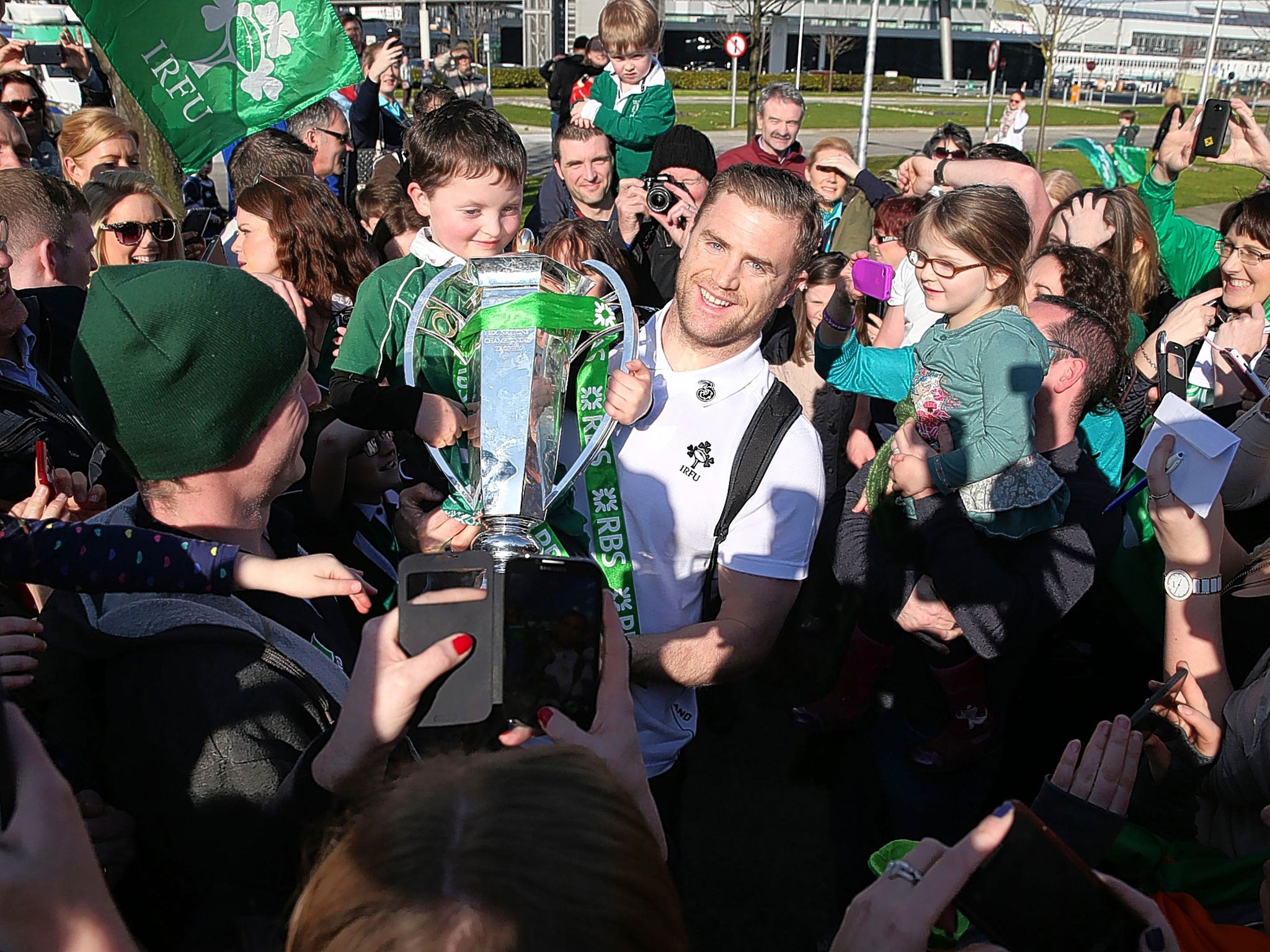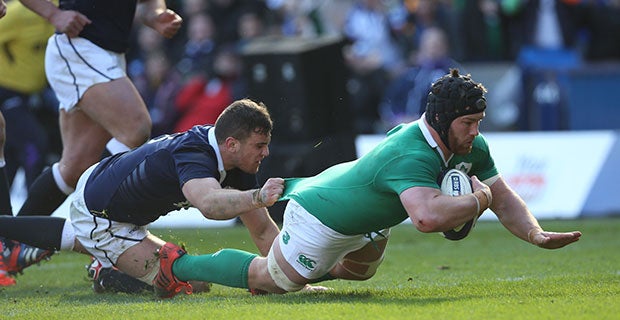Six Nations 2015: Plan A is enough to give Ireland cause for optimism
There is something of England 2003 about the Irish 2015 model

Your support helps us to tell the story
From reproductive rights to climate change to Big Tech, The Independent is on the ground when the story is developing. Whether it's investigating the financials of Elon Musk's pro-Trump PAC or producing our latest documentary, 'The A Word', which shines a light on the American women fighting for reproductive rights, we know how important it is to parse out the facts from the messaging.
At such a critical moment in US history, we need reporters on the ground. Your donation allows us to keep sending journalists to speak to both sides of the story.
The Independent is trusted by Americans across the entire political spectrum. And unlike many other quality news outlets, we choose not to lock Americans out of our reporting and analysis with paywalls. We believe quality journalism should be available to everyone, paid for by those who can afford it.
Your support makes all the difference.Regrets? Joe Schmidt has only a few, and that should make him the envy of his Six Nations counterparts. That dreadful first half against Wales nags at him for one – although what Stuart Lancaster would give to be contemplating a second successive Six Nations title.
While the England coach mulls over finishing second best for a fourth year, his Ireland counterpart has two from two and sits at the helm of a team that looks best placed to bid for a first northern hemisphere World Cup win since the English did it a dozen years ago.
There is something of England 2003 about the Irish 2015 model: a totemic leader, a level-headed, calculating No 10 at the peak of considerable powers, experience from front to back and, overseeing it all, the man with the plan.
In that defeat in Cardiff, Ireland were criticised for a lack of a Plan B, a one-track approach, and while they showed they can fling the ball around and gallop in tries at Murrayfield on Saturday they will need to do it against sterner opponents than Scotland – opponents who tackle consistently – before it can be proved whether that is a true failing of this impressive group of players.
The sprightly return of Luke Fitzgerald and the continuing progress made by the centre pairing of Robbie Henshaw and Jared Payne – remember, they have 16 caps between them, in comparison to the 200-plus of the garlanded pairing who preceded them – suggests Ireland will improve as a broader attacking threat.
The inexperience in that department cost them in Cardiff and Schmidt admitted at Murrayfield on Saturday, as the roars of the Irish supporters watching the England game on the big screen drifted into the marquee where he was talking with the media, that even if his team were crowned champions there would be “some regrets” about the campaign.
Irish Grand Slams do not come along often. This would have been a third. Nevertheless, this is still a historic achievement, a title retained for the first time since 1949.
“The two titles are special for different reasons,” said Schmidt, speaking again later once Ireland had collected the (replica) trophy. “This is special because of the way we had to rebound from last week. It’s special because it’s been so long since we’ve put back-to-back Six Nations together.”

There is a level-headedness about this Ireland team. It stems from coach and captain, and it is one you sense will suit them well come this autumn and the hype that will accompany them to England.
Ireland share a World Cup pool with France. Top it and they will probably face Argentina in the last eight and possibly England in the semi-finals. Most importantly they cannot face New Zealand until the final if they win their group (slip up against France and they will meet them in the quarter-finals).
Schmidt does not have the resources Lancaster has, in particular the size of player base to choose from. The Ireland coach, though, is aided by a domestic system geared towards the national side.
“I think to go back-to-back in the Six Nations is incredible,” said Paul O’Connell, the Irish captain, after another towering performance against Scotland. “It’s a very, very difficult thing to do, particularly [because] Ireland is a small island with four professional teams. It just goes to show how good the athletes and the players we have are, and I think the way the provinces are run, and the way strength and conditioning-wise we’re right up there too.”
In his two seasons in charge Schmidt has taken a decent side and made them into a very good one. In the simplest of terms, he sends his teams out to beat what is in front of them there and then.
If that means kicking and keeping it tighter than an austerity budget, so be it. Or if the job requires getting the ball through the hands and chasing scores – as needed on Saturday – then that will be done. And he has a group of players intelligent enough to carry out his instructions.
“I still think we can improve quite a lot,” said scrum-half Conor Murray, who has made sizeable strides under Schmidt. “With a World Cup coming up it’s a great position to be in.
“Joe is a world-class coach and there is no secret there. The way he has the group organised, it is player-driven as well. We take on board what he says and we really believe what he gives us and we have huge belief in the squad at the moment. The longer we are together, hopefully the better we will get.”

Ireland and Scotland will meet again in August in a warm-up for the World Cup. The Scots will head to Dublin fearing another hiding.
Vern Cotter’s first Six Nations was a qualified disaster. “Disgrace,” yelled one supporter at the coaches’ box in the closing minutes on Saturday. Not quite, but the consistent deterioration in the second half of all their games is a major concern for Cotter.
There is a straw or two to be clutched – Stuart Hogg can trouble any defence, Finn Russell can be a decent international 10 and if Alex Dunbar can get fit Scotland have decent centres.
Their key World Cup game is against Samoa in Pool B. Right now it is not a fixture Scotland can look forward to with any optimism. Schmidt, O’Connell and Co took all that – and the Six Nations trophy – back across the Irish Sea yesterday morning.

NatWest are proud to support Rugby. Current account customers can win exclusive rugby experiences. It’s not who you know, it’s who you bank with. Visit natwest.com/rugbyreward
Join our commenting forum
Join thought-provoking conversations, follow other Independent readers and see their replies
Comments